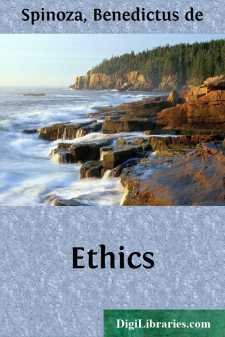Categories
- Antiques & Collectibles 13
- Architecture 36
- Art 48
- Bibles 22
- Biography & Autobiography 813
- Body, Mind & Spirit 142
- Business & Economics 28
- Children's Books 17
- Children's Fiction 14
- Computers 4
- Cooking 94
- Crafts & Hobbies 4
- Drama 346
- Education 46
- Family & Relationships 57
- Fiction 11829
- Games 19
- Gardening 17
- Health & Fitness 34
- History 1377
- House & Home 1
- Humor 147
- Juvenile Fiction 1873
- Juvenile Nonfiction 202
- Language Arts & Disciplines 88
- Law 16
- Literary Collections 686
- Literary Criticism 179
- Mathematics 13
- Medical 41
- Music 40
- Nature 179
- Non-Classifiable 1768
- Performing Arts 7
- Periodicals 1453
- Philosophy 64
- Photography 2
- Poetry 896
- Political Science 203
- Psychology 42
- Reference 154
- Religion 513
- Science 126
- Self-Help 84
- Social Science 81
- Sports & Recreation 34
- Study Aids 3
- Technology & Engineering 59
- Transportation 23
- Travel 463
- True Crime 29
Ethics
Categories:
Description:
Excerpt
I. By that which is self—caused, I mean that of which the essence involves existence, or that of which the nature is only conceivable as existent.
II. A thing is called finite after its kind, when it can be limited by another thing of the same nature; for instance, a body is called finite because we always conceive another greater body. So, also, a thought is limited by another thought, but a body is not limited by thought, nor a thought by body.
III. By substance, I mean that which is in itself, and is conceived through itself: in other words, that of which a conception can be formed independently of any other conception.
IV. By attribute, I mean that which the intellect perceives as constituting the essence of substance.
V. By mode, I mean the modifications[1] of substance, or that which exists in, and is conceived through, something other than itself.
[1] "Affectiones"
VI. By God, I mean a being absolutely infinite—that is, a substance consisting in infinite attributes, of which each expresses eternal and infinite essentiality.
Explanation—I say absolutely infinite, not infinite after its kind: for, of a thing infinite only after its kind, infinite attributes may be denied; but that which is absolutely infinite, contains in its essence whatever expresses reality, and involves no negation.
VII. That thing is called free, which exists solely by the necessity of its own nature, and of which the action is determined by itself alone. On the other hand, that thing is necessary, or rather constrained, which is determined by something external to itself to a fixed and definite method of existence or action.
VIII. By eternity, I mean existence itself, in so far as it is conceived necessarily to follow solely from the definition of that which is eternal.
Explanation—Existence of this kind is conceived as an eternal truth, like the essence of a thing, and, therefore, cannot be explained by means of continuance or time, though continuance may be conceived without a beginning or end.
AXIOMS.
I. Everything which exists, exists either in itself or in something else.
II. That which cannot be conceived through anything else must be conceived through itself.
III. From a given definite cause an effect necessarily follows; and, on the other hand, if no definite cause be granted, it is impossible that an effect can follow.
IV. The knowledge of an effect depends on and involves the knowledge of a cause.
V. Things which have nothing in common cannot be understood, the one by means of the other; the conception of one does not involve the conception of the other.
VI. A true idea must correspond with its ideate or object.
VII. If a thing can be conceived as non—existing, its essence does not involve existence.
PROPOSITIONS.
PROP. I. Substance is by nature prior to its modifications.
Proof.—This is clear from Deff. iii. and v.
PROP. II. Two substances, whose attributes are different, have nothing in common.
Proof.—Also evident from Def. iii. For each must exist in itself, and be conceived through itself; in other words, the conception of one does not imply the conception of the other.
PROP. III. Things which have nothing in common cannot be one the cause of the other....


